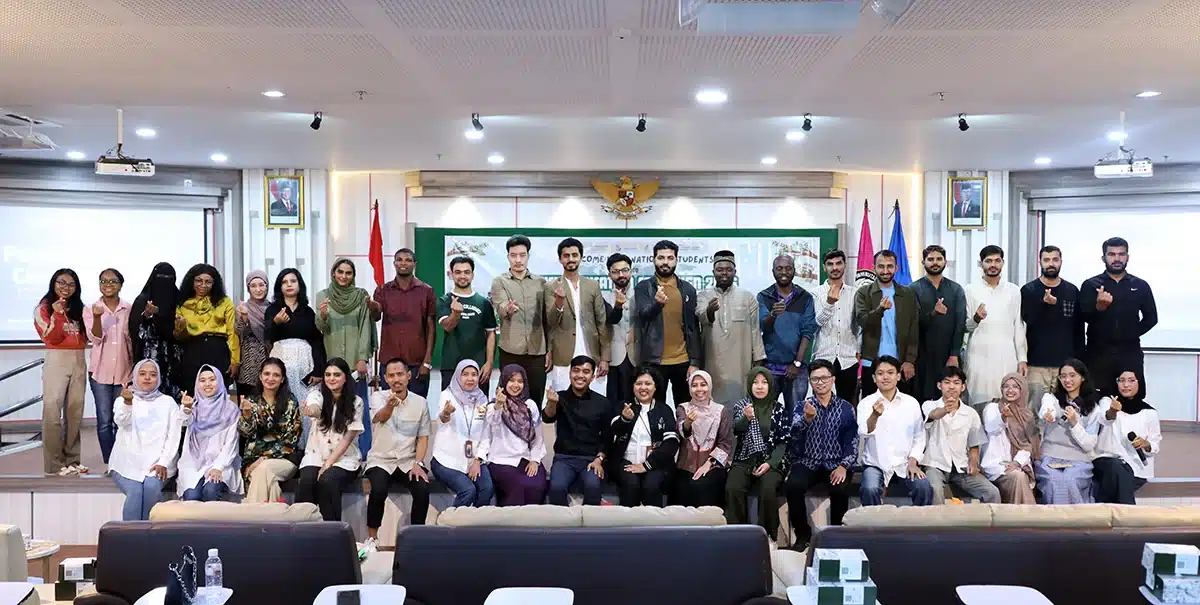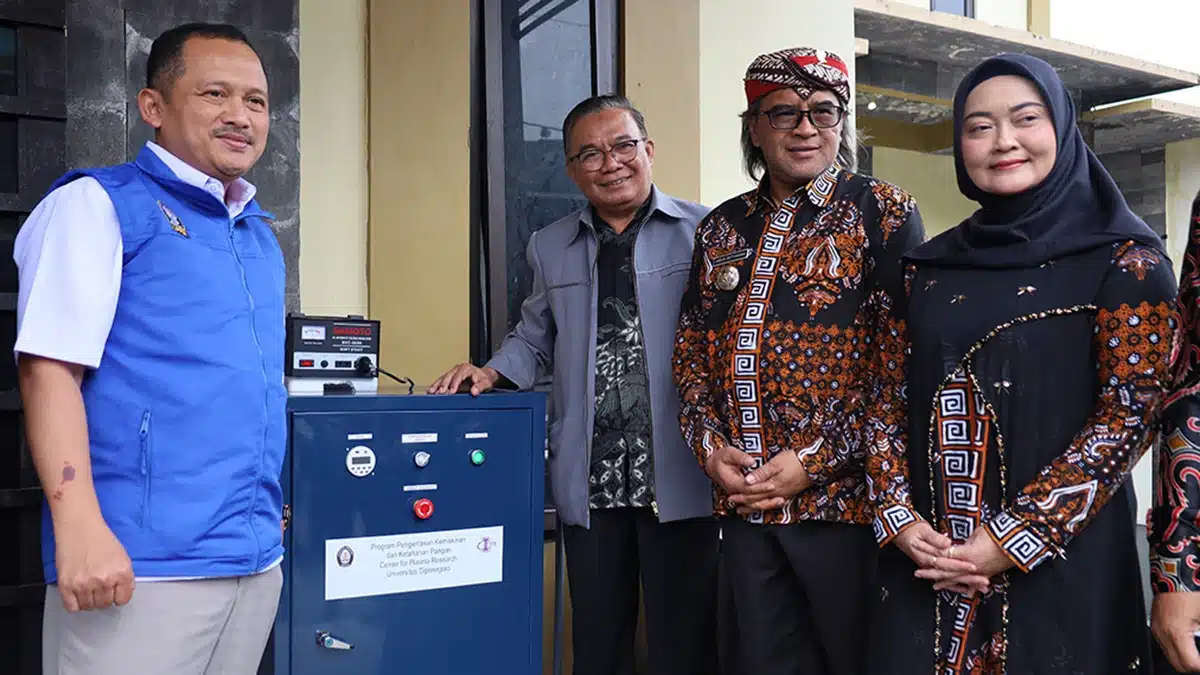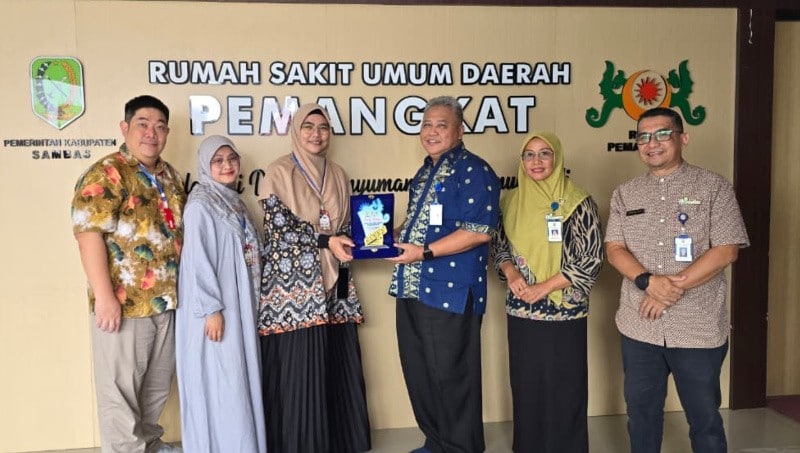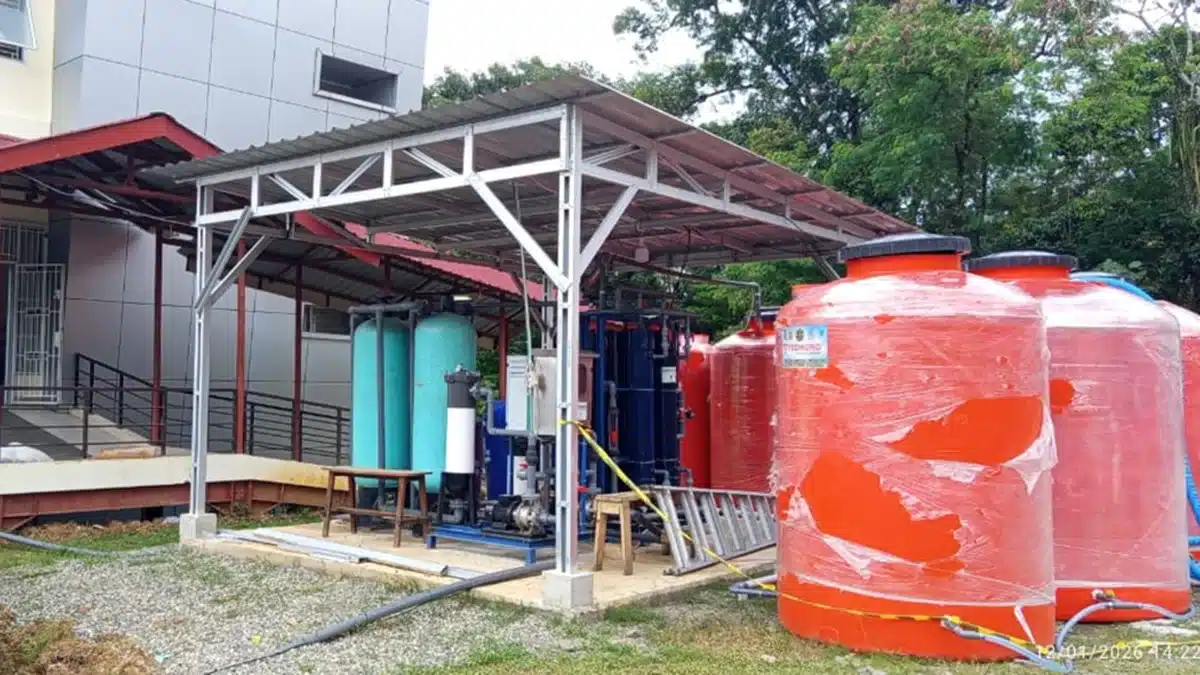One of the Professors of Diponegoro University (Undip) has entered his retirement period. The professor is Prof. Dr. Ir. Bambang Pramudono, M.S., who has served at Undip for approximately 47 years. The Professor of Separation Engineering at the Faculty of Engineering, Diponegoro University (FT Undip) has produced many ideas for the progress of Undip, especially in the Department of Chemical Engineering, Faculty of Engineering, Undip.
In order to give appreciation and respect for all the dedication and services that have been given so far, Diponegoro University held an Open Session of Purna Adi Cendekia on Tuesday (05/07) at the Prof. Soedarto SH Building, Undip Tembalang campus. Marking his retirement, Prof. Dr. Ir. Bambang Pramudono, M.S., delivered a speech entitled “The Strategic Role of Chemical Engineering in the Era of the World Energy Crisis”.
At the beginning of his speech, he said that experts had predicted that in the next era the world would experience a crisis that would later be related to human survival. According to him, there are 4 crises that will occur, including energy scarcity, food scarcity, clean water scarcity, and environmental damage.
The term crisis or scarcity in this context can be interpreted as an imbalance between the availability of energy, food, clean water and the amount needed. Based on observations and experience, crises can be classified into 2, namely temporary crises, usually marked by extraordinary increases in the prices of energy and food commodities. The causes of this crisis are natural disasters, wars, trade embargoes, epidemics, and others. Then the second is an absolute crisis, because conventional food and energy resources are running out, due to unplanned management.
Prof. Bambang revealed that Chemical Engineering has an important role in overcoming the scarcity or energy crisis. “To overcome the four shortages, the discipline of Chemical Engineering is very relevant to prevent or overcome them. Chemical Engineering disciplines play a central and strategic role in overcoming these problems together with other disciplines.” said Prof. Bambang.
Currently, energy needs are still dominated by fossil energy or conventional energy. In 2006, the use of fossil energy was still around 95% and the use of non-fossil energy was only less than 5%. The phenomenon of the use of energy sources from fossil energy which is still very high also occurs in almost all countries in the world. To overcome and anticipate the energy crisis that will occur, the programs that have been carried out so far are still relevant to be continued and even have to be improved or optimized, namely:
- Conservation in form of saving or reducing the use of fossil energy
- Diversification of the use of energy types other than fossil energy
- Efficiency and optimization of fossil energy exploration, for example using the chemical injection method in Enhanced Oil Recovery (EOR)
- Policy review in the energy sector
- Empowerment of non-fossil energy resources or alternative energy with abundant sources
“Alternative energy has the meaning of replacing the main (dominant) energy used at a time (usually fossil/conventional energy) for conservation and diversification purposes. Empowerment of non-fossil energy resources, diversification of energy use, optimization or efficiency of fossil energy exploration can be carried out based on Chemical Engineering disciplines.” he explained.
He explained that in facing the upcoming energy crisis, efforts to diversify energy became very important and absolutely necessary. The role of Chemical Engineering in empowering alternative energy based on biomass is the right choice in the context of energy diversification. Biomass is organic materials derived from food and non-food plants, industrial waste from agricultural cultivation, plantations, forestry, animal husbandry, fisheries, industrial waste and municipal waste.
“With various biomass conversion technologies such as: briquetting, gasification, carbonization / pyrolysis, anaerobic digestion, liquefaction, according to the biomass waste used, various types of energy will be produced, such as biomass briquettes, synthesis gas (syn-gas), biofuel, charcoal , hydrogen, bio gas, bio-ethanol, biodiesel, and others, which can function as a substitute for fossil fuels.” said Prof. Bambang.
He added that hydrogen is a priority to be developed because it is ideal as energy in the future. Hydrogen has advantages compared to other types of energy, namely:
- Clean and environmentally friendly fuel
- Does not cause polluting gases such as: CO2, CO, SOx and NOx
- Specific Carbon Emission = 0.0 kg/kg fuel
- Non-toxic
- High specific energy (energy content 9.5 kg H2 equivalent to 25 kg gasoline)
- Hydrogen can be transported safely through pipes
- Compared to electrical energy, hydrogen can be stored for a relatively longer period
In order to use green energy, there are several steps that become the main priority, namely the development of biomass-based hydrogen production technology, research on hydrogen storage devices (hydrogen storage), and research on fuel cells.
In addition to efforts to diversify the use of biomass-based energy and the development of fuel cell technology as a storage and producer of green energy, Chemical Engineering also plays a role in increasing the efficiency of crude oil exploration.
“From the description and analysis, it can be concluded that the discipline of Chemical Engineering is very relevant and has a major role in designing various alternative energy processes (or diversification) from various sources of renewable raw materials. Chemical Engineering can also play a role in increasing the efficiency of petroleum exploration through the enhanced oil recovery (EOR) process.” concluded Prof. Bambang.










